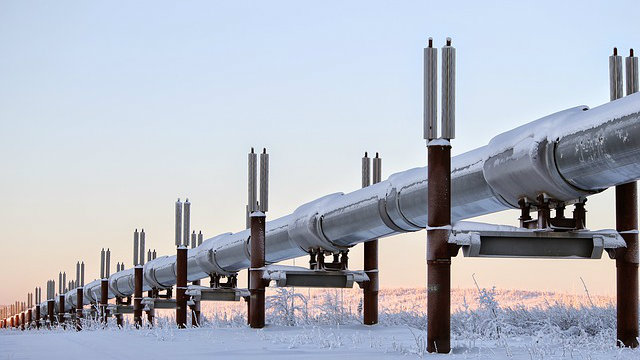The Keystone XL pipeline has been through a lot of controversy, and although it passed a final hurdle with Nebraska giving it the green light back in November, there are still questions. For one, the path approved was not the one that TransCanada Corporation (TSX:TRP)(NYSE:TRP) preferred, and that means higher costs and a more difficult implementation that might put the viability of the project into question.
However, the company got a boost from the Alberta government recently when it was announced that it would commit to a 20-year agreement in which the province will transport 50,000 barrels daily through the pipeline. In total, TransCanada has said that it has 500,000 daily barrels of oil secured for the Keystone XL.
Why does this matter?
In order for TransCanada to go through with the pipeline, it needs to justify doing so from a business perspective. It’s great that it got the approval to go ahead, but the circumstances are not ideal, and there are still long-term questions about if there is a need for the pipeline anymore.
The Keystone XL has been in the works for many years, since the price of oil was higher, and the demand was more evident. However, as we’re seeing an evolution in the auto industry and growing trend towards electric vehicles and more environmentally-friendly sources of energy, demand for oil could decline in the years to come.
Although these are long-term implications, the concerns are very real. This is why securing demand and long-term contracts is important for TransCanada to move ahead with the project.
Many projects already cancelled
While Keystone XL still presents the possibility to move forward, people should not take it as a given. Last year, we saw TransCanada cancel the Energy East pipeline after it was determined to no longer be feasible after the government wanted to do a broader review of the project’s environmental impact. Enbridge Inc. also saw its Northern Gateway project cancelled by the Liberal government.
Given the uncertainty we are seeing in the industry, it’s likely that a fair amount of pessimism is already priced in to TransCanada’s stock, with many investors likely skeptical that the project will move ahead and be profitable. Despite the progress the Keystone XL has made, TransCanada has not seen its share price get a boost from it.
In the past year, the share price has been down over 4%, and the approval from Nebraska did nothing to help. The stock has been stuck in a narrow range between $59 and $65, leaving investors with not much of an opportunity to turn a profit.
Is the stock a buy today?
The share price is near its 52-week low, and it could be a good time to buy ahead of TransCanada’s Q4 earnings next month. The company also pays a solid dividend of over 4.1%, which could entice investors that may not see a lot of upside in the stock’s price.
In its most recent quarter, TransCanada’s sales declined from a year ago, but it produced a profit of $652 million, which was a big improvement over the $108 million loss that it recorded a year ago. If TransCanada can build on those results, then that might finally give the stock the boost it needs to generate some momentum.









